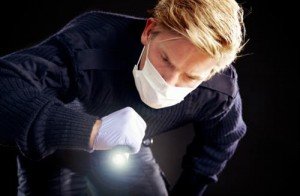 According to the California Association of Criminalists (CAC), a criminalist is a science-background (biochemistry, forensic science, biology, criminalistics, etc.) college-graduate professional who applies scientific techniques or methods to analyze and examine evidentiary components, testifying in court (if necessary) about specific findings.
According to the California Association of Criminalists (CAC), a criminalist is a science-background (biochemistry, forensic science, biology, criminalistics, etc.) college-graduate professional who applies scientific techniques or methods to analyze and examine evidentiary components, testifying in court (if necessary) about specific findings.
Bachelor's Degree
None
Moderate-term
13,000
19%
2,400
In addition to the CAC, forensic science professional organizations to contact for information include SWGMAT, SWGDAM, ASCLD, ASTM E-30, DAB, ASCLD-LAB, AAFS, and ABC.
What Criminalists Do at Work
Simply put, criminalists help law enforcement agencies manage, analyze and solve crime. To that end, they use a number of areas of science (i.e., entomology, odontology, pathology, engineering, criminology, geology, etc.) in order to examine evidence at crime scenes—hopefully identifying culprits and shedding light on what actually happened at the scene.
Criminalists, considered experts in their field, often testify in court; their testimony can be crucially important in obtaining convictions—or overturning them, as in DNA-responsible release of later-found-to-be-innocent felons. Way before this, however, criminalists look at well-differentiated arrays of evidence, in most cases having to connect the “dots”—often making sense of otherwise enigmatic circumstances.
Acquiring the Knowledge Necessary for the Job
The first step in becoming a criminalist is obtaining the necessary education; this should include:
- Basic analytical procedures in toxicology, fingerprints, criminalistics, questioned documents, molecular biology, chemistry, etc.
- Controlled substances—usage metrics, etc.
- Toxicity and hazards of chemicals.
- Case law and statutes applicable to court-admissible physical evidence and forensic disciplines.
- Expert witness, discovery, time limits and evidence matters affecting rules of criminal procedure.
- Scenes of crime procedures.
- The prompt/proper processing of evidence at crime scenes.
- The analysis of scientific data mathematics.
It also involves developing these special skills:
- Draw valid scientific conclusions from evidence at hand.
- Look for and recognize patterns; by the same token, notice disparities, abnormalities and aberrations.
- Identify/quantify chemical compounds such as poisons, diluents and drugs.
- Establish origin of substances found at crime scenes.
- Chemically identify mysterious/unknown substances.
- Place suspects at crime scenes through creative methods.
- Develop good communication skills, especially in reporting scientific findings.
- Be able to convincingly testify in court findings; undergo intense cross-examinations.
- Conduct tests with high degree of accuracy/precision.
- Accumulate and properly interpret all evidence obtainable.
Other Requirements and Criteria
After obtaining the right training/education, you will also have to meet the following basic criteria (which may be different from state to state):
- You may have to take special exams required by the agency/state in question.
- You will need to pass stringent background checks that include criminal, credit, department of motor vehicle, drug usage, etc.
- You may need a graduate degree for most supervisory positions.
- In some cases, you may need the ability to prepare a lab for ASCLD/LAB Accreditation.
Career Outlook and Salary
According to the US Bureau of Labor Statistics, the future looks bright for most crime processing/investigating professionals, including criminalists. The expected salary for criminalists ranges from $35,000 to $50,000, depending on experience and training. Criminalists with graduate degrees and supervisory experience can make $100,000 or more.
Conclusion
If you wish to become a criminalist, you have chosen a worthwhile, promising career. The very few “cons” for this choice are the fact that you may have to witness gory scenes, possibly come in contact with dangerous criminals (who may harbor grudges against you for participating in their being convicted), sometimes be confused for a criminologist (a related but different profession), and suffer serious consequences if you ever make mistakes on the field.
All in all, though, the pros well outweigh the cons. Criminalists help society fight crime and put away criminals. You can take pride in helping law enforcement “take a bite out of crime!”